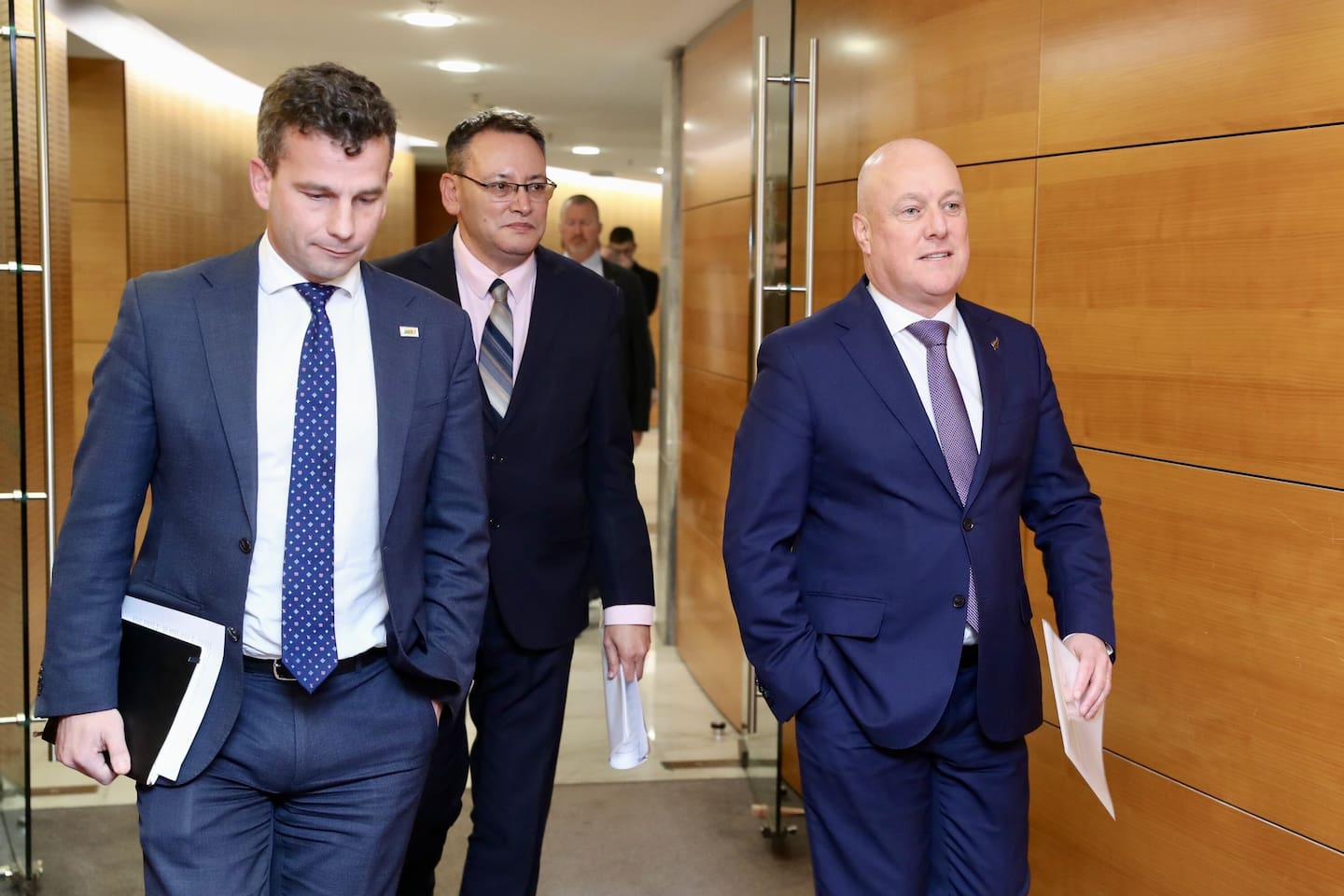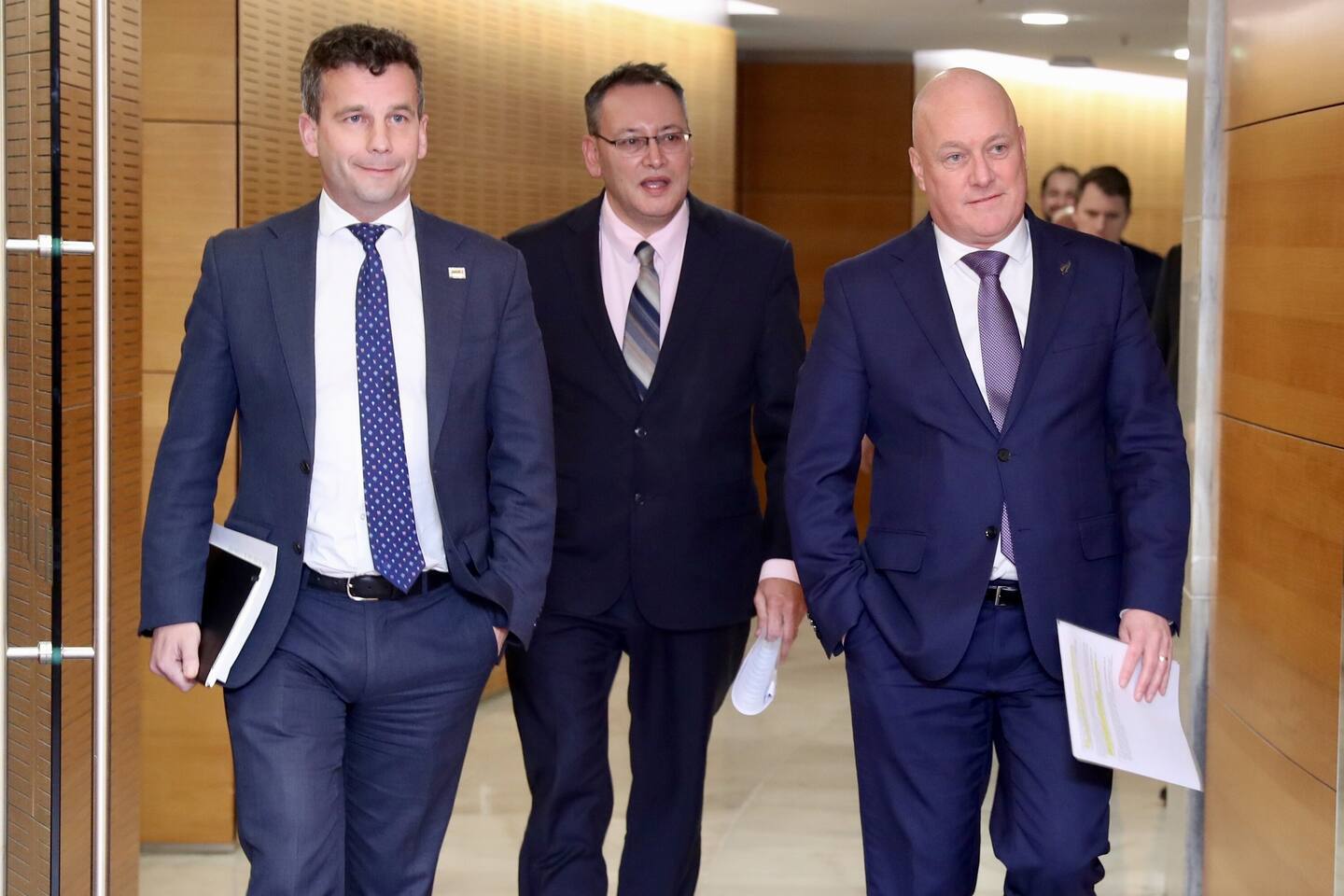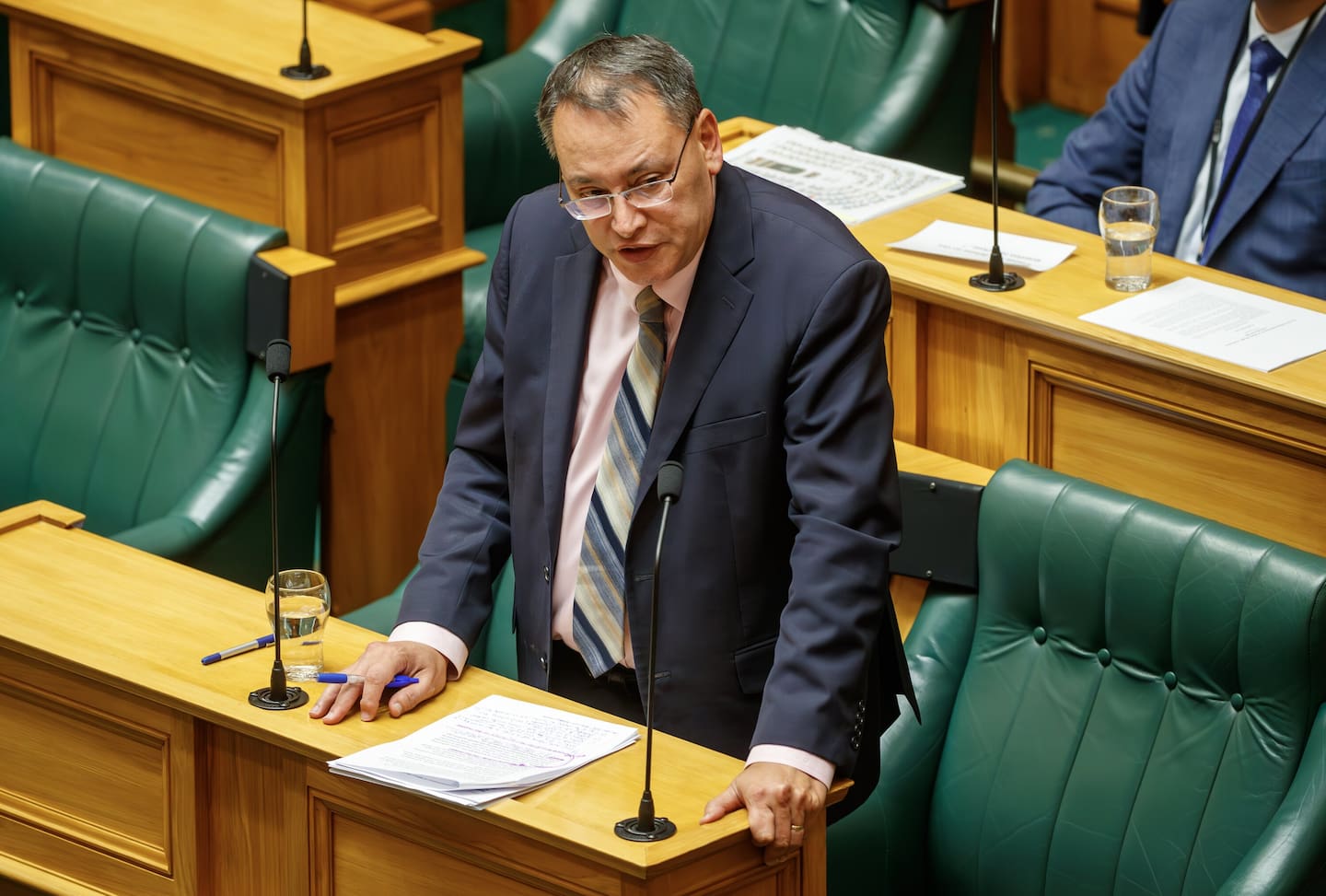Up to 26 new cancer treatments will be funded alongside 28 other medicines as part of the Government’s $604 million health budget to honour a National pre-election promise.
However, National’s commitment to fund 13 specific cancer drugs hasn’t been fully met with up to seven listed in its 2023 policy included in today’s funding package with the others replaced by “alternatives just as good or better”, Health Minister Dr Shane Reti said.
Reti, Prime Minister Christopher Luxon and Pharmac Minister David Seymour made the announcement today at the post-Cabinet press conference, which Reti estimated would benefit about 175,000 people in the first year.
Luxon said the quality of a person’s life was driven by the quality of their health.
“We are delivering on our promise to help Kiwis fighting cancer.
“This is a great day for many New Zealanders.”
On the Government’s communications around the cancer drugs, Luxon conceded they could have communicated better.
The cancer medicines funded would treat cancer of the lung, liver, bowel, kidney, head and neck and bladder. It would also treat melanoma.

David Seymour, Dr Shane Reti and Prime Minister Christopher Luxon front media at today's post-Cabinet press conference in Wellington. Photo / Mark Mitchell
Some of the drugs would be available from October/November this year while others would be phased in next year.
Reti clarified the exact number of medicines wasn’t yet confirmed, given Pharmac’s independent model.
Purchasing the drugs would cost $604m over the next four years - $108m this financial year, $146m in 2025/26 and $175m for each of the following two years. The money was a pre-commitment on next year’s Budget.
An additional $38m would also be spent delivering the treatments this year. Delivery costs for the following three years hadn’t been established.
Reti appears to have backed away from a commitment last week to fund the same 13 drugs National promised ahead of the 2023 election.
The seven cancer drugs in National’s policy that would be funded were:
- Atezolizumab with bevacizumab for liver cancer
- Axitinib for kidney cancer – second-line therapy
- Cetuximab or panitumumab for bowel cancer – first-line therapy
- Nivolumab for kidney cancer – second-line therapy
- Osimertinib for lung cancer – first-line therapy
- Osimertinib for lung cancer – second-line therapy
- Pembrolizumab for bladder cancer
The 28 non-cancer-related drugs would address a range of conditions likely to include infections, respiratory conditions, osteoporosis, sexual health, dermatology, inflammatory conditions, and mental health.
Reti described the investment in treatments as “unprecedented”.
He said today’s announcement meant treatments for all the cancer types in the manifesto were covered.
Reti said he hoped within 12 months from November most of the medicines would be rolled out but that would be dependent on procurement.
He apologised for the uncertainty the coalition Government’s communications would have caused patients and their families.
Asked if he was also sorry, alongside Reti’s apology, Luxon did not give a direct answer, saying “we could have explained it better”.
Asked whether he would apologise, Luxon said the Government had ... and “I do as well”.
”Yes we apologise for that.”
He said he appreciated the announcement would not deliver for everyone.
Luxon said “we have been wrestling with how best to deliver this”.

David Seymour, Dr Shane Reti and Prime Minister Christopher Luxon front media at today's post-Cabinet press conference in Wellington. Photo / Mark Mitchell
“We know there is a lot of work for us to do in respect to the fiscal [situation] in New Zealand.”
On where the funding was coming from, Luxon said it was additional.
Luxon said today was a “special day” and a “substantive, significant, over the top” investment.
He described the cancer drug funding as a “pre-commitment out of Budget 2025″.
“Yes we would have liked the timing to be a little bit sooner.”
Pharmac Minister David Seymour described today as a “wonderful day” for patients in New Zealand.
Seymour said the world was “awash” with new inventions for new drugs.
“The wealthiest country in the world will never afford what pharmaceutical companies can invent.”
Seymour said he got letters every day from people making choices between selling something to fund a drug - or having no options at all – and today’s announcement would be a “game changer” for those families.
The announcement was done in a way that respected the integrity of Pharmac, he said.
Seymour said receiving a large amount of money is short order would require Pharmac to be “on their game”.
Government faces strong criticism after new drugs absent from Budget
On Friday, the Herald reported it was understood Cabinet would decide today on a proposal to push a further $500-$600 million into Pharmac over the next four years in a bid to ensure Pharmac funds the cancer drugs that National promised.
It would mean National’s cancer drug promise ended up costing about double the $280m it had initially costed the policy at over a four-year period – and funding other medicines as well.
The Government has faced strong criticism after funding for the new drugs was absent in this year’s Budget, even though National’s policy proposed the first of four $70m tranches was to come in Budget 24.
Reti initially claimed nothing about the policy had changed since the revenue needed to fund the policy hadn’t yet been received. Last week, he admitted the Government’s poor communication and hadn’t appropriately developed the policy.

Health Minister Dr Shane Reti has admitted the Government's communication concerning the policy was poor. Photo / Mark Mitchell
Last week, both Reti and Finance Minister Nicola Willis guaranteed the same 13 drugs outlined in National’s policy would be funded. However, Seymour wouldn’t give that guarantee, citing Pharmac’s independent model and the problems it posed to the drug-buying entity’s negotiations with drug companies.
Alongside the cancer drugs promise, Luxon will likely field questions about the Interislander Aratere ferry running aground on Friday night and the future of Cook Strait ferry services.
It’s expected he will also give his reaction to Transpower confirming the collapse of a power pylon that led to widespread power cuts in Northland was caused by maintenance crews removing all of the nuts at the bottom of three of the pylon’s legs.
Transpower chief executive Alison Andrew said the removal of the nuts was “unprecedented and inconceivable”. Almost 100,000 people were left without power.
Adam Pearse is a political reporter in the NZ Herald Press Gallery team, based at Parliament. He has worked for NZME since 2018, covering sport and health for the Northern Advocate in Whangārei before moving to the NZ Herald in Auckland, covering Covid-19 and crime.
Take your Radio, Podcasts and Music with you









